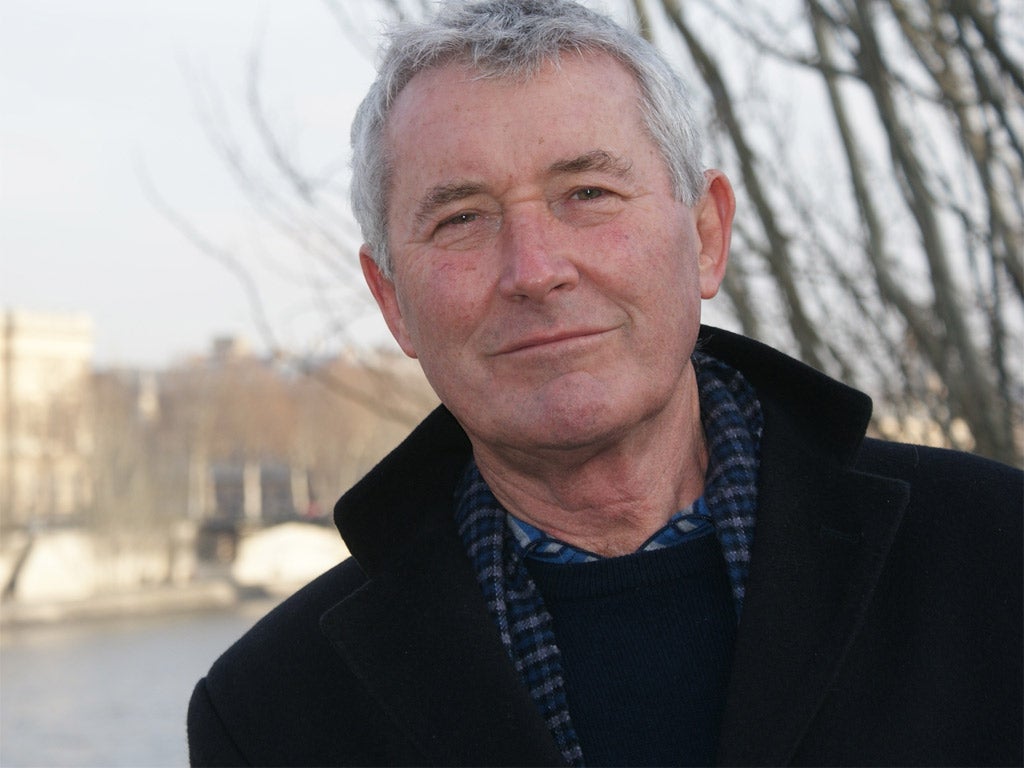Lawyer acting for East Timor is raided by Australian agents
The country's overseas intelligence service has been accused of bugging the cabinet office of its tiny, impoverished neighbour

Your support helps us to tell the story
From reproductive rights to climate change to Big Tech, The Independent is on the ground when the story is developing. Whether it's investigating the financials of Elon Musk's pro-Trump PAC or producing our latest documentary, 'The A Word', which shines a light on the American women fighting for reproductive rights, we know how important it is to parse out the facts from the messaging.
At such a critical moment in US history, we need reporters on the ground. Your donation allows us to keep sending journalists to speak to both sides of the story.
The Independent is trusted by Americans across the entire political spectrum. And unlike many other quality news outlets, we choose not to lock Americans out of our reporting and analysis with paywalls. We believe quality journalism should be available to everyone, paid for by those who can afford it.
Your support makes all the difference.Australia has been accused of “unconscionable and unacceptable conduct” towards its tiny, impoverished neighbour, East Timor, after it cancelled the passport of a former spy preparing to testify about its alleged bugging of the East Timorese cabinet during sensitive negotiations on the sharing of royalties from lucrative oil and gas deposits beneath the Timor Sea.
Australia’s domestic intelligence agency, ASIO, also raided the offices of Bernard Collaery, a Canberra-based lawyer acting for East Timor at a case scheduled to begin on Thursday in The Hague, seizing documents relating to the eavesdropping operation, allegedly carried out by spies posing as aid workers.
Since gaining independence from Indonesia in 2002, East Timor has regarded the energy reserves in the Timor Sea, which separates it from northern Australia, as the key to its economic future.
Its wealthy neighbour, though, is also keen for a share of the riches, and in 2006 – following years of talks – the two countries agreed a treaty dividing the A$40bn (£22bn) royalties 50-50, although the oil and gas fields lie about 60 miles off East Timor and about 250 miles from Australia.
Some advocates for East Timor claimed that Australia “bullied” it into signing the treaty.
It was during negotiations in 2004 that members of ASIS, Australia’s overseas intelligence service, allegedly planted bugs in the cabinet office in Dili, under the cover of carrying out renovations as part of an aid programme. They recorded the conversations of senior ministers before and after each negotiating session, carrying the transcripts back to Australia in a diplomatic bag.
East Timor is now seeking to have the treaty scrapped, on the grounds that Australia had an unfair – and illegally acquired – advantage. And its star witness is the man questioned for hours by ASIO on Tuesday and prevented from travelling to The Hague: ASIS’s former director of technical operations, who is said to have led the bugging operation.
Australia’s Prime Minister, Tony Abbott, defended the moves on “national security” grounds. But they caused anger and dismay in Dili, with East Timor’s prime minister, Xanana Gusmao, condemning them as “unconscionable” and “contrary to a trustworthy, honest and transparent [neighbourly] relationship”.
Australia’s Attorney-General, George Brandis, who personally authorised ASIO’s actions, said they had nothing to do with the imminent hearing at the Permanent Court of Arbitration in The Hague, and said that material seized – which reportedly includes the former spy’s affidavit – would “not under any circumstances … be communicated” to lawyers acting for Australia in the case.
However, the deputy leader of the Australian Greens, Adam Bandt, condemned the moves, saying that “George Brandis seems to think he’s J Edgar Hoover and is able to throw warrants around like confetti”.
According to Mr Collaery, the ex-ASIS officer decided to blow the whistle after learning that the former Foreign Minister, Alexander Downer, who allegedly ordered the eavesdropping operation, is now a lobbyist for Woodside Petroleum, the multinational oil and gas giant with the biggest commercial stake in the Timor Sea deposits.
Mr Collaery called the raids “a disgrace”, claiming they were “designed to intimidate the witness and others from coming forward… [and] to cover up an illegal operation in 2004 by ASIS”.
The bugging operation, he said, was a breach of international law and of East Timorese sovereignty.
The row follows a diplomatic rift between Australia and Indonesia, caused by revelations that Canberra sought to monitor mobile-phone conversations between the Indonesian president, Susilo Bambang Yudhoyono, and his wife.
Join our commenting forum
Join thought-provoking conversations, follow other Independent readers and see their replies
Comments